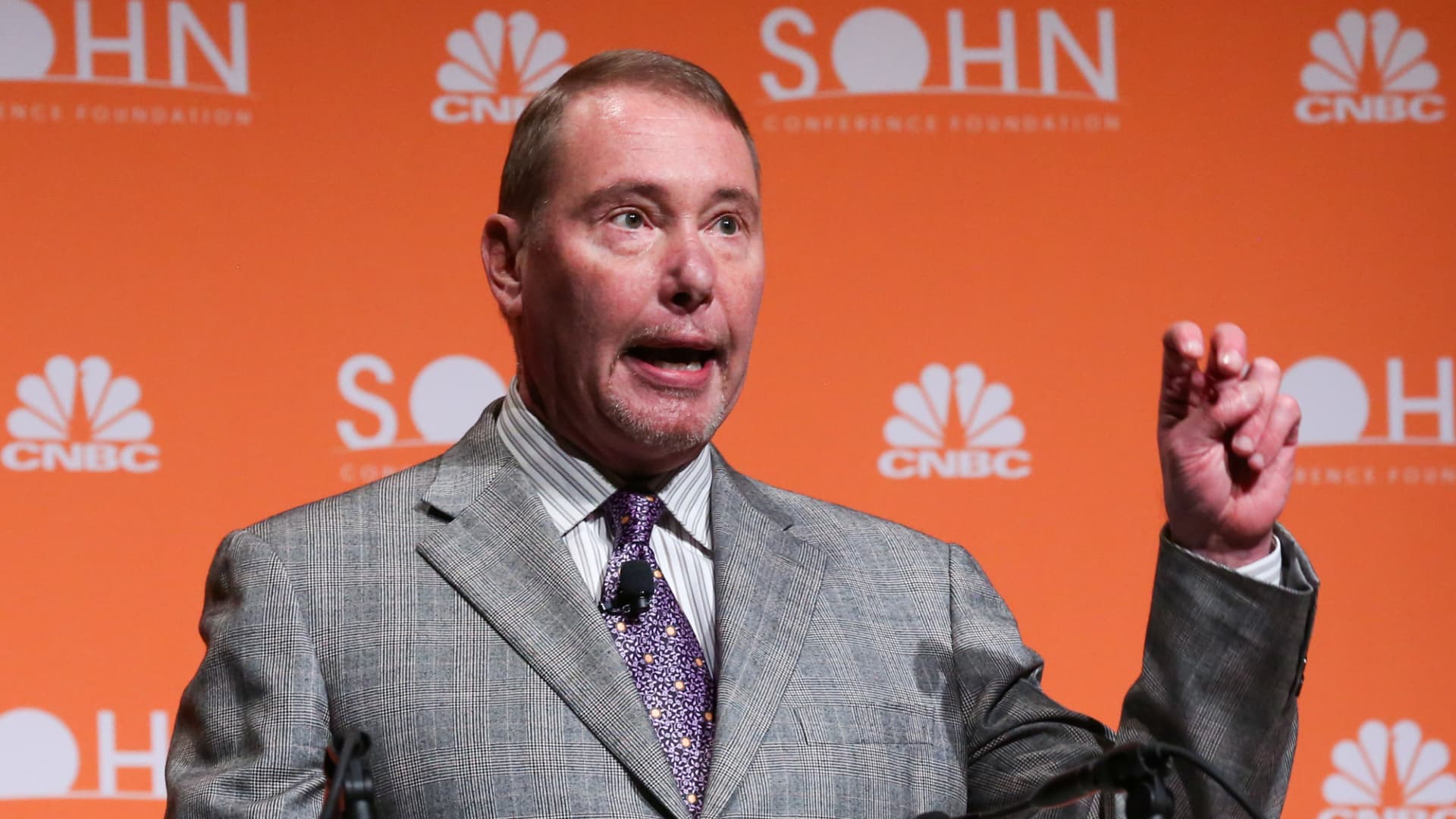Products You May Like
DoubleLine Capital CEO Jeffrey Gundlach said Wednesday the 10-year Treasury yield will continue to fall to the 3% range next year, following the Federal Reserve’s new forecast for rate cuts.
“I think we’re still going to have bonds rallying,” Gundlach said on CNBC’s “Closing Bell.” “I would guess that we will see the 10-year Treasury yield in the low threes sometime next year.”
The benchmark rate hit a low of 4.015%, the lowest level since August, after the Fed held rates steady for a third consecutive meeting and set the stage for three interest rate reductions in 2024.
The yield, a benchmark for mortgage rates and other consumer loans, had topped the key 5% level in October for the first time since 2007. Yields and prices move in opposite directions to one another.
“There’s something about if you break below four on the 10-year that I think it almost sounds like a fire alarm going off relative to the economy,” Gundlach said.
Projections released by the Fed showed the central bank would slash rates to a median 4.6% by the end of 2024, which would equate to three quarter-point reductions from the current targeted range between 5.25% and 5.5%.
Gundlach believes it’s unlikely that the central bank would reduce borrowing cost by that much next year.
“They’re just going to cut by three quarters of a percentage point or so says the Fed. I mean, I think that’s pretty unlikely,” Gundlach said. “I think that if they cut rates that much, they’ll have to cut them more than that.”
Don’t miss these stories from CNBC PRO:
